“This is Writing Excuses. Fifteen minutes long because you’re in a hurry, and we’re not that smart.”
Every podcast of Writing Excuses, a Hugo and Podcast Award winning series, ends with that snappy tagline.
“Everything you need to know about the celebrities you don’t.”
This tagline for Slow Burn summarizes what it is—a history podcast that delves into the unknown subplots of major historical events. The series is considered one of the most popular of 2019.
“‘Hey, Alexis? Can I pet your dog?’ ‘Can I pet your dog?’”
Can I Pet Your Dog? is a quirky but popular podcast where two women chat about their dogs and the dogs they meet. It seems simple, and yet it’s so successful.
These three podcasts in completely different genres use taglines, guests hosts, and other tools to appeal to their audiences. They’re completely different, but they know what they need to succeed. We’ll talk about how you can experience some of that success yourself.
But first, here are a few important steps you’ll want to take before starting your podcast.
Audio Equipment
Buy your equipment. How much audio equipment you need depends on what you’re willing to pay and how many hosts you have. At a bare minimum, you’ll need a microphone and computer. Use a USB microphone if it’s just you or a microphone with XLR output if you plan to have a team of hosts. Microphones range in price from almost $1,000 to less than $100. One of the most popular low-cost microphones of 2019 is the Samsun Q2U. Other equipment to consider: headphones, mixer, pop filter, headphone amplifier, headphone stand.
Buy what you can afford but consider that one of the hosts of Writing Excuses regretted not going with good audio equipment earlier on.
Podcast Plugins
In order to upload your files, consider using Blubrry. As our site states, “PowerPress by Blubrry is one of the top podcasting plugins for WordPress. Use it to create a podcast and it will manage all of your media files, episodes and iTunes feeds. Use this integration to grant access to private podcasts based on MemberPress memberships.”
Now, on to success.
Host/Hosts
Every podcast has one or more hosts. That’s obvious. But what makes a host successful? What do a slate of award-winning authors, a serious journalist, and lighthearted women have in common? Personality. Wit. And relatability. They’re the same aspects that make a character in a fiction novel likable. Renee and Alexis, hosts of Can I Pet Your Dog?, spend the episode making jokes and laughing, and yet they know their stuff when it comes to dogs. Hosts of Writing Excuses advertise that they aren’t that smart (which makes them more personable, even though they are that smart). Success in hosting comes from knowing who you are and being true to yourself. You are real, so be real. Offer great insight, and don’t be afraid to be vulnerable about your shortcomings. (That’s what makes you relatable.) Even the host of Slow Burn admitted he knew little about Watergate before going into the season on Watergate.
Guest Hosts
Many great podcasts have guest hosts. A guest host is an individual who joins a podcast for one or a few episodes. Guests hosts help you find success because they increase your connections. For instance, all the friends, family, and fans of your guest host will listen to the episode the guest host participates in. If they like your podcast, they’ll listen to more. Guest hosts also offer more perspective and knowledge, so it’s a win-win.
Subject Matter
Obviously, the subject matter of your podcast has to be in line with your membership site. If your site sells cookies, the podcast has to somehow relate to cookies. You could do a podcast on funny cookie stories or on cookies in pop media. And while it’s great to pick a niche subject, don’t go so narrow you can’t speak about it for dozens of episodes. Even regarding subject matter, the three podcasts we’ve mentioned share a common ground. They all have a USP (unique selling point). A USP is a unique spin or twist that makes your podcast stand out from the others. Writing Excuses is far shorter than a typical podcast, for instance. Slow Burn explores the lesser-known aspects of a story. Can I Pet Your Dog? blends comedy and dogs together to make something fresh.
Music
Many podcasts include a jingle. Jingles are not necessary, and not every podcast has one, but music can get stuck in a listener’s head like nothing else. If someone is singing your song in his or her mind, he or she is thinking about your podcast. It’s sneaky, and that’s why companies do it. Can I Pet Your Dog? has a jingle about all the dogs they want to meet. (A word to the wise: be careful with copyright laws when creating a jingle and create your own music, or make sure you have rights to it.) If you don’t use a jingle, you can use some other hook to captivate your audience from the get-go. Maybe you start every episode with a joke about cookies or an unusual cookie fact. Whatever you choose, be consistent, and you’ll keep your audience happy.
Tagline
Yes, we are finally going to talk about taglines! Consider Slow Burn’s tagline: “Everything you need to know about the celebrities you don’t.” It’s short and simple and piques curiosity. Keep your tagline to one to two sentences. Slow Burn’s tagline also explains what the podcast is about and why it should be of interest to their audience. That’s what you need to do. Your tagline should summarize your entire podcast in a way that’s casual, catchy, and tells your audience why they should care.
Remember:
- Buy the best audio equipment and get your site set up for a podcast.
- Be yourself. Know your stuff. Don’t be afraid to admit your shortcomings or failures.
- Invite others to participate on your podcast.
- Pick a niche topic and find a USP.
- Use music (if you want).
- Capture what your podcast is and why it appeals in your tagline.
While Writing Excuses, Slow Burn, and Can I Pet Your Dog? seem like totally different podcasts for totally different audiences, they all apply some of the same basic elements to create appeal. Try following their examples, and chances are you’ll find success.
What are some of your favorite podcasts? Have you seen success or failure in podcast creation? Why do you listen to podcasts? Please let us know in the comments below. If you liked this post, please follow us on Facebook for more great content. You can also find us on Twitter and Instagram.













Add a Comment